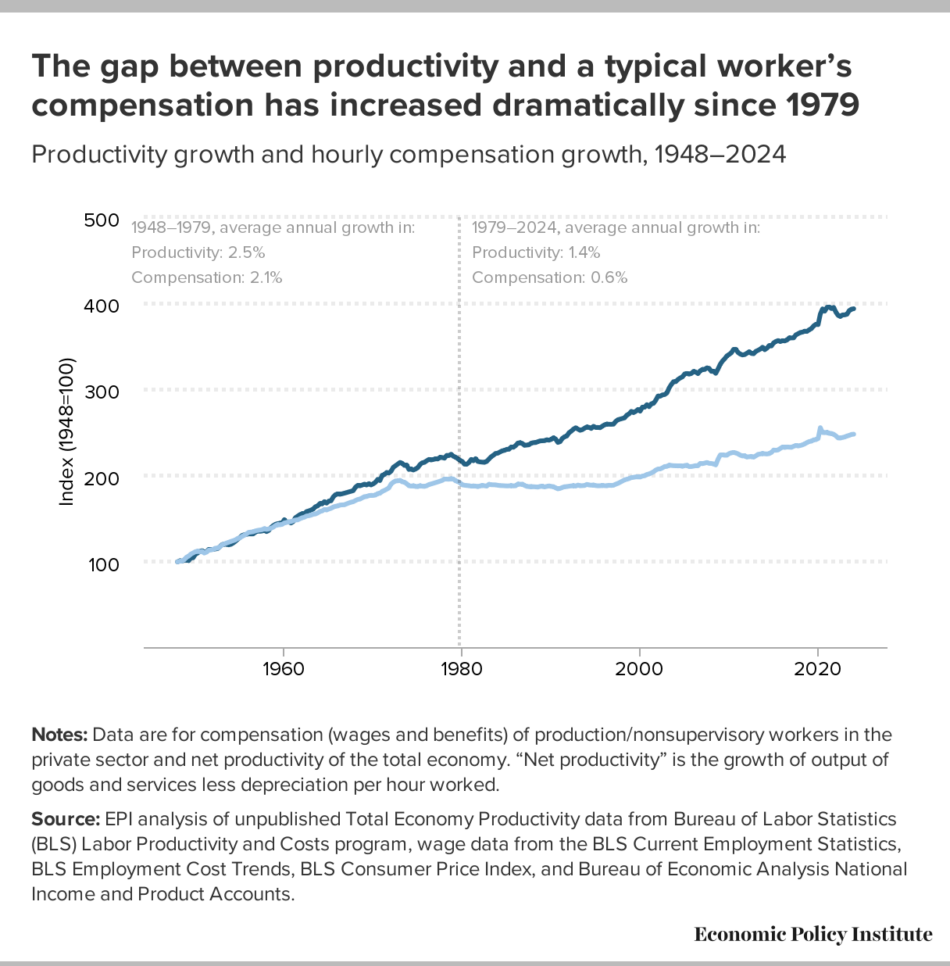Identifying the policy levers generating wage suppression and wage inequality | Economic Policy Institute
Larry Mishel and Josh Bivens, Economic Policy Institute There is now widespread acceptance across the political spectrum that the typical worker’s wages have grown very slowly or been stagnant for several decades but a consensus narrative explaining wage stagnation has not developed yet. [togglable text="expand abstract"] The frequently invoked conventional explanations attributing wage problems primarily to automation and, somewhat, to globalization, cannot actually explain key wage develo...| Economic Policy Institute



